Turkey offers condolences to Armenia over WWI killings
- Published
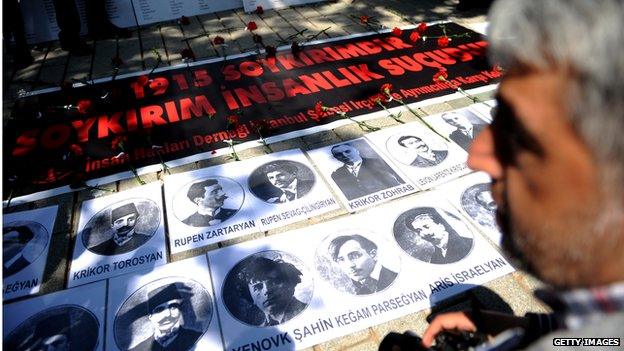
Turkey rejects the use of the term "genocide" to describe the 1915 mass killings of Armenians
Turkish PM Recep Tayyip Erdogan has offered condolences for the first time for the mass killings of Armenians under Ottoman rule during WWI.
His comments came on the eve of the 99th anniversary of the mass deportation of Armenians in 1915.
Turkey denies Armenian claims that up to 1.5 million people were killed and that it constituted an act of genocide.
Mr Erdogan said the events of 1915 had "inhumane consequences," and expressed hope that those who died were at peace.
Turkey maintains that many of the dead were killed in clashes during World War I, and that ethnic Turks also suffered in the conflict.
The exact nature of what happened remains highly contentious and has continued to sour relations between Turkey and Armenia.
In his message, Mr Erdogan stopped short of using the term "genocide" to describe the mass killings.
'Shared pain'
Mr Erdogan struck a conciliatory tone in his statement on Wednesday, in which he offered Turkey's condolences to the grandchildren of Armenians who lost their lives in 1915.
In the statement, which was translated into nine languages including Armenian, he described the events of World War I as "our shared pain".
"Having experienced events which had inhumane consequences - such as relocation - during the First World War, (it) should not prevent Turks and Armenians from establishing compassion and mutually humane attitudes among towards one another," he said.
He said "millions of people of all religions and ethnicities lost their lives in the First World War".
But he said it was "inadmissible" for Armenia to use the 1915 events "as an excuse for hostility against Turkey" and to turn the issue "into a matter of political conflict".
It is the first time a Turkish leader has formally offered condolences for the mass killings.
He also repeated calls to set up a joint historical commission into the events surrounding the killings - a request that has so far been denied by the Armenian authorities.
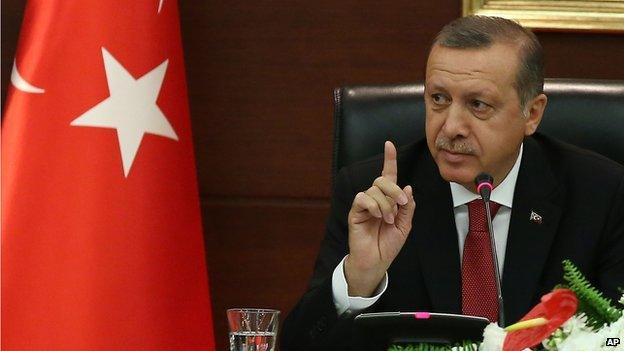
Recep Tayyip Erdogan conveyed Turkey's condolences to the grandchildren of Armenians who were killed
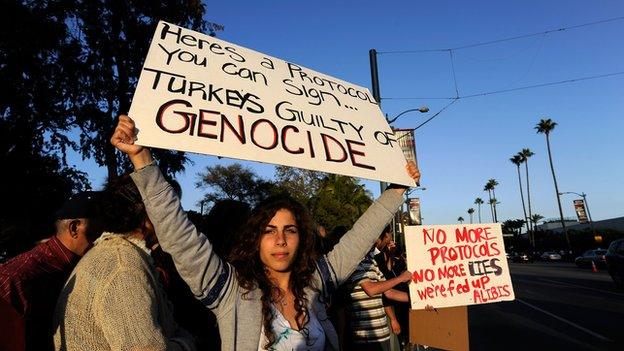
Many Armenians - including in the diaspora - are upset by Armenia's warming diplomatic relations with Turkey in recent years
There has been a slight thaw in relations between Turkey and Armenia in recent years.
The governments of the two countries agreed to normalise relations in October 2009, but peace efforts have since stalled and the border remains shut.
Last year, Turkish Foreign Minister Ahmet Davutoglu called the 1915-16 events a "mistake" during Turkey's first high-level visit to Armenia in almost five years.
Armenia says up to 1.5 million people died in 1915-16 as the Ottoman empire split. Turkey has said the number of deaths was much smaller.
The killings are regarded as the seminal event of modern Armenian history, uniting one of the world's most dispersed peoples.
Most non-Turkish scholars of the events regard them as genocide.
Among the other states which formally recognise them as genocide are Argentina, Belgium, Canada, France, Italy, Russia and Uruguay. The UK, US, Israel and others use different terminology.
Armenians mark the date of 24 April 1915 as the start of what they regard as the genocide.
Correction, 14/05/2014: We added a line to say most scholars regard the events as genocide, to make clear that the weight of academic opinion concurs with that view.
- Published24 April 2021
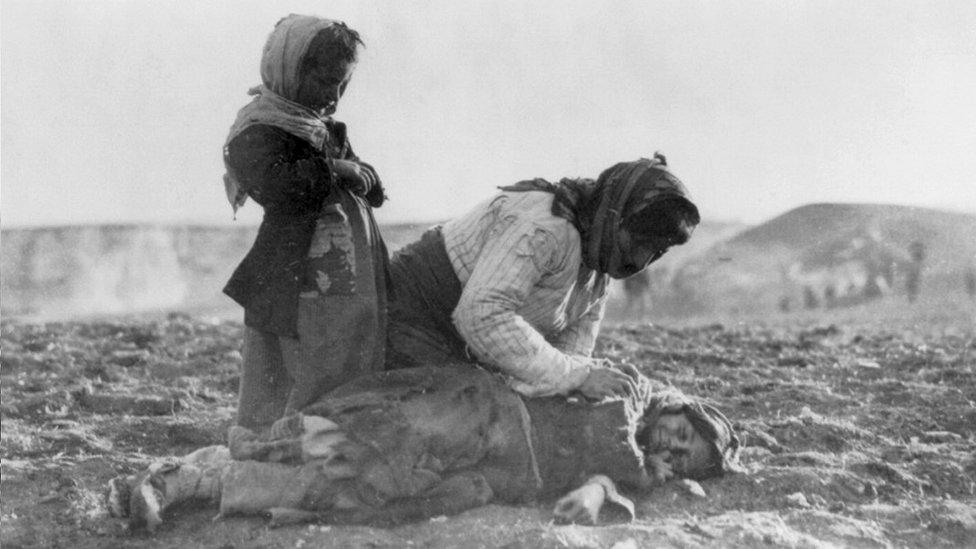
- Published8 July 2012
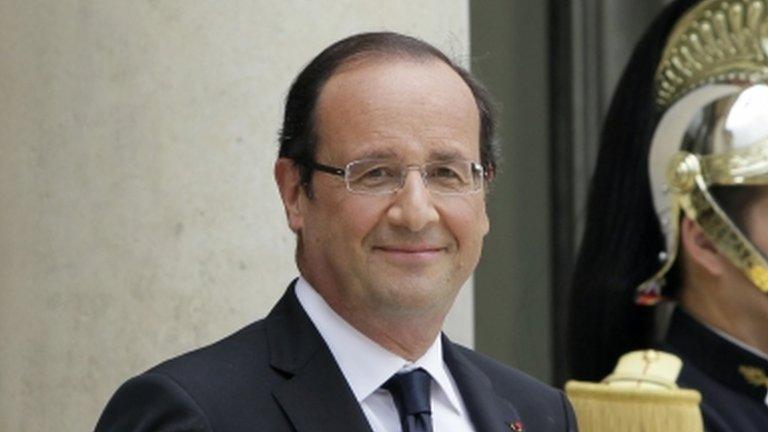
- Published30 January 2024
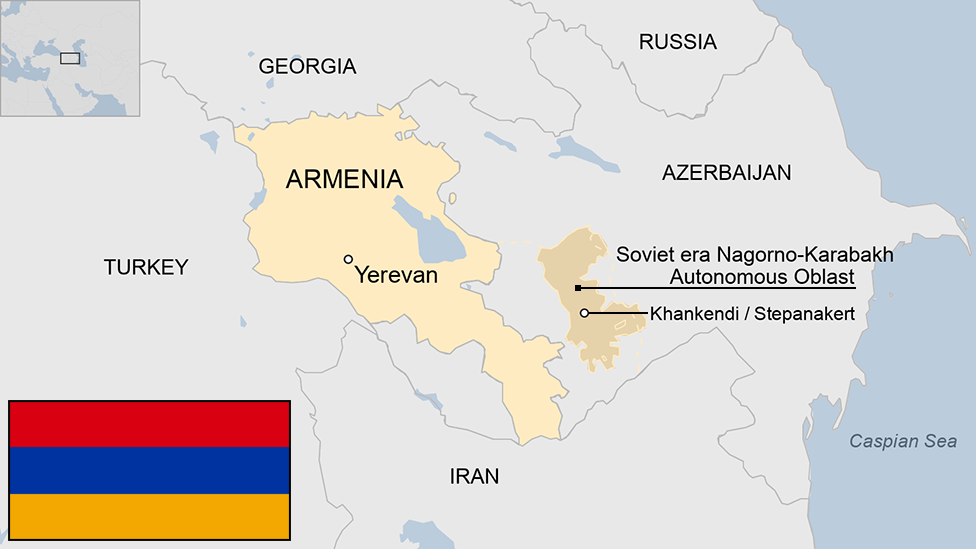
- Published14 December 2022